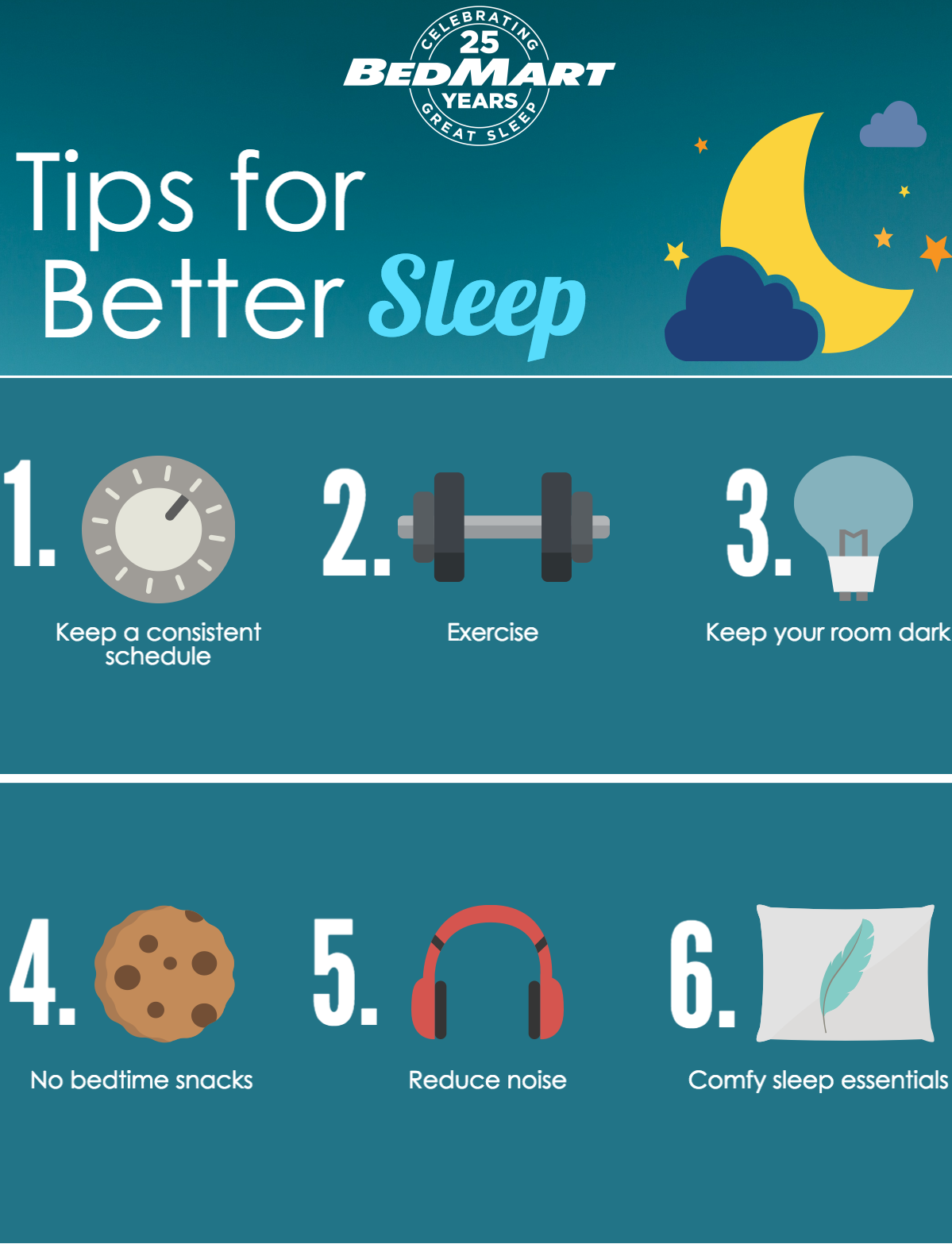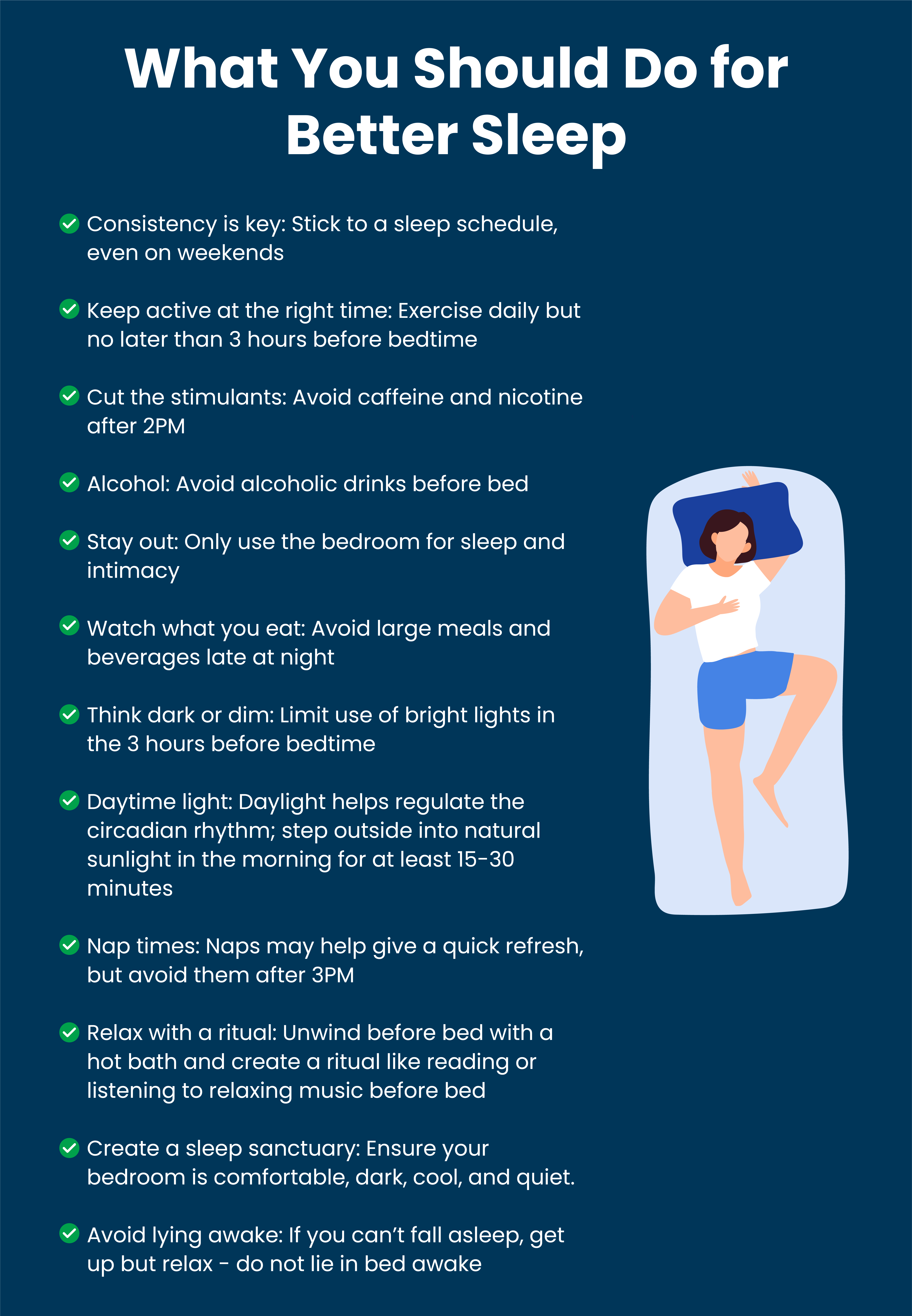How to Get More Sleep
To get more sleep, establish a regular sleep schedule and create a calm and comfortable sleep environment. Achieving adequate sleep is crucial for overall health and well-being.
Research shows that lack of sleep can contribute to various health issues like obesity, diabetes, and compromised immune function. Additionally, it can impair cognitive function, lead to mood disturbances, and decrease productivity. To improve sleep quality, it is important to follow a consistent bedtime routine, avoid stimulants like caffeine and nicotine close to bedtime, and create a bedroom environment that promotes relaxation.
This includes keeping the room cool, dark, and quiet, investing in a comfortable mattress and pillows, and limiting screen time before bed. By prioritizing good sleep habits, you can optimize your restorative rest and wake up feeling refreshed and rejuvenated.
Understanding The Importance Of Sleep
Getting enough quality sleep is crucial for our overall well-being. Sleep plays a vital role in restoring and rejuvenating both our bodies and minds. Neglecting our sleep can have serious negative effects on our health, including decreased cognitive function, impaired judgment, and increased risk of chronic conditions such as heart disease and obesity.
When we establish personal sleep goals and make adequate sleep a priority, we can enhance our physical and mental performance. It is important to understand our individual sleep needs and aim for a consistent sleep schedule that allows us to achieve the recommended 7-9 hours of sleep per night. This can be achieved by creating a relaxing bedtime routine, keeping our sleep environment comfortable and cool, and avoiding stimulants close to bedtime.

Credit: www.shopbedmart.com
Creating A Healthy Sleep Environment
To improve your sleep quality, it is essential to create a healthy sleep environment. Start by selecting the right mattress and pillows that provide optimal comfort and support for your body. A good mattress should be firm enough to support your spine but also soft enough to relieve pressure points. Choose pillows that cradle your head and neck in a neutral position.
Another aspect to consider is managing noise and light levels. Reduce noise distractions by using earplugs or a white noise machine. Hang blackout curtains or use an eye mask to block out unwanted light. These adjustments can help create the ideal environment for sleep by promoting a sense of calm and relaxation.
Developing A Nighttime Routine
Developing a nighttime routine is essential for getting more sleep. Establishing a consistent sleep schedule is the first step in creating a routine. Go to bed and wake up at the same time every day, even on weekends. This helps regulate your body's internal clock and improves sleep quality. Incorporating relaxation techniques into your routine can also promote better sleep. Try deep breathing exercises or progressive muscle relaxation before bed to relax your body and mind. Additionally, it's important to avoid electronic devices before bed. The blue light emitted by screens can interfere with your sleep-wake cycle. Instead, opt for reading a book or listening to calming music to wind down. By following these tips, you can develop a nighttime routine that promotes a good night's sleep.
Credit: www.businessinsider.com

Credit: www.sleepscore.com
Frequently Asked Questions On How To Get More Sleep
How Can I Improve The Quality Of My Sleep?
Improving the quality of your sleep can be achieved by creating a consistent sleep schedule, creating a calming bedtime routine, avoiding caffeine and electronic devices before bed, and creating a comfortable sleep environment. Additionally, practicing relaxation techniques such as deep breathing or meditation can help induce a more restful sleep.
What Are Some Natural Remedies For Better Sleep?
There are several natural remedies that can promote better sleep. These include drinking herbal teas like chamomile or lavender, using essential oils such as lavender or valerian, taking a warm bath before bed, and using a weighted blanket. These remedies can help relax the mind and body, making it easier to fall asleep and stay asleep throughout the night.
Does Exercise Help Improve Sleep Quality?
Yes, exercise can significantly improve the quality of sleep. Engaging in regular physical activity can help regulate the sleep-wake cycle and promote a deeper, more restorative sleep. However, it is important to avoid vigorous exercise close to bedtime as it can have a stimulating effect on the body and make it harder to fall asleep.
Conclusion
Getting enough sleep is essential for our overall health and well-being. By following the tips mentioned in this blog post, such as establishing a consistent bedtime routine, creating a sleep-friendly environment, and managing stress levels, you can improve the quality and duration of your sleep.
Remember, getting adequate rest is not just a luxury, it is a necessity for a healthy and productive lifestyle. So, start implementing these strategies today and prioritize your sleep for a happier and healthier you.
Comments
Post a Comment